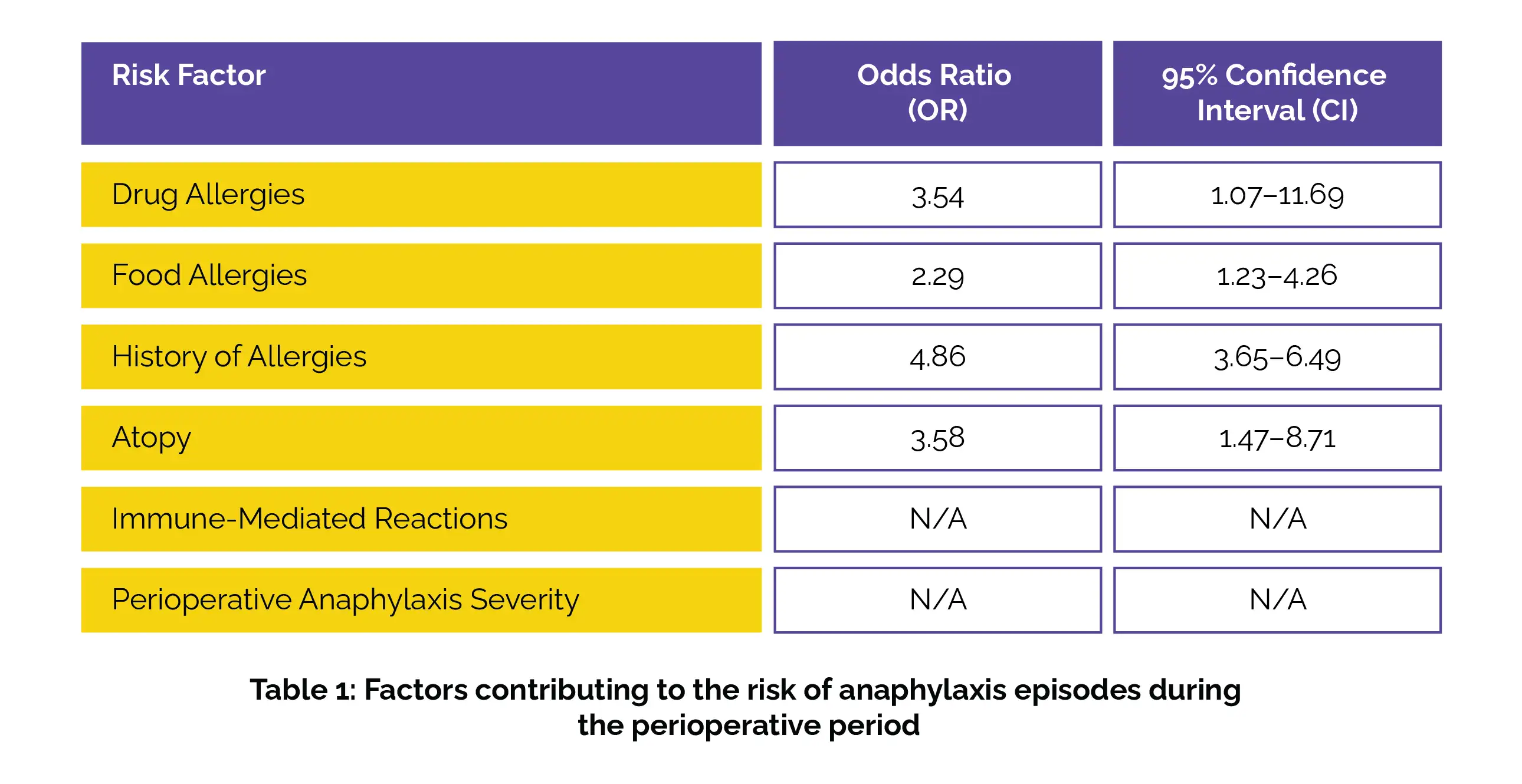Categories
Change Password!
Reset Password!


To consolidate existing evidence and assess the correlation between prior allergies/allergic conditions and allergic reactions during surgery (anaphylaxis), aiming to provide informed guidance for preventive measures.
People with a history of allergic conditions or atopy may be more susceptible to anaphylaxis (hypersensitivity or allergic reaction) during surgery, albeit without a heightened risk of life-threatening perioperative anaphylaxis or immune-mediated reactions.
To consolidate existing evidence and assess the correlation between prior allergies/allergic conditions and allergic reactions during surgery (anaphylaxis), aiming to provide informed guidance for preventive measures.
Two independent investigators explored the Ovid MEDLINE, EMBASE, and the Cochrane Library for relevant observational studies. They conducted a screening of articles and collected study details.
Subgroup and sensitivity analysis along with meta-regression were used to evaluate the relationship between a history of allergies/allergic diseases and perioperative anaphylaxis from the systematically searched articles.
This systematic review and meta-analysis included 19 studies (672 studies on anaphylaxis episodes, 5608 on immune-mediated reactions and 1126 on severe episodes) which fulfilled the eligibility criteria. Heightened occurrence with drug and food allergies, previous record of allergies, and atopy, but not with immune-mediated reactions or severity was found to be linked to perioperative anaphylaxis, details below (Table 1):

Patients with prior drug or food allergies, allergy history, or atopy have a higher anaphylaxis risk during surgical procedures. More studies are needed to ascertain whether a record of allergies/allergic diseases is a major contributing factor for perioperative anaphylaxis if confounding variables are controlled.
Journal of Clinical Anesthesia
Relationship between perioperative anaphylaxis and history of allergies or allergic diseases: A systematic review and meta-analysis with meta-regression
Panpan Zhang et al.
Comments (0)